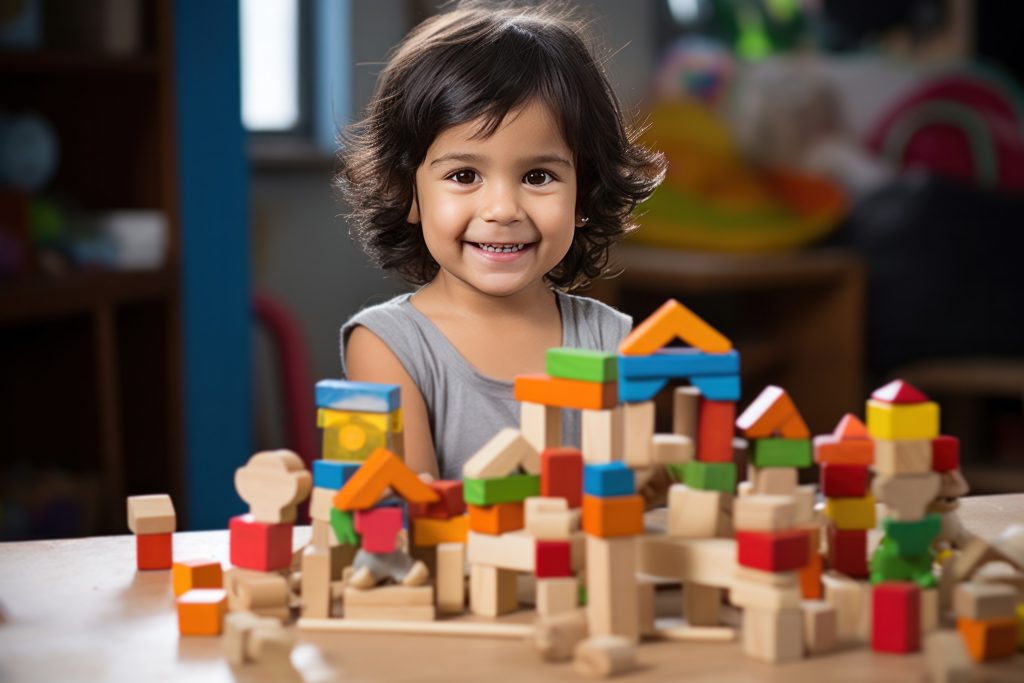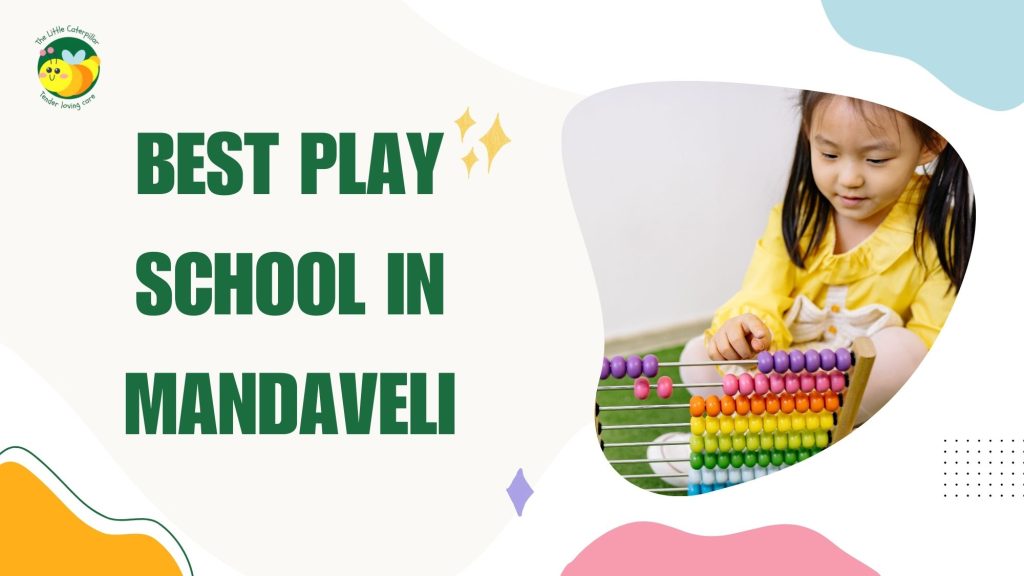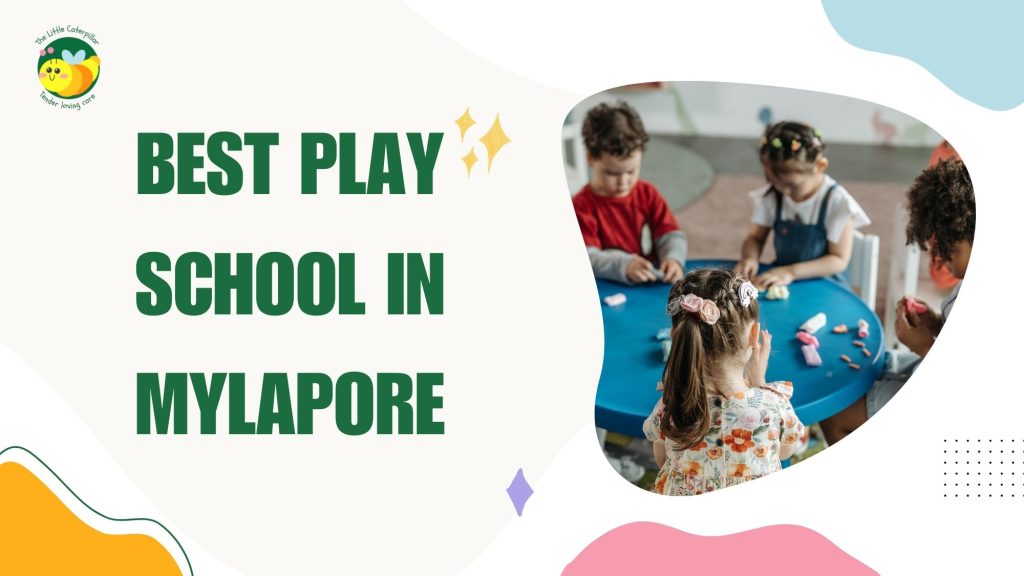Table of Contents
The Little Caterpillar – Playschool in Chennai – Inspired by Montessori and Reggio Emilia with an Indian touch
Introduction
Building confidence in toddlers is a vital part of their growth and sets the foundation for their future success. By combining principles from the Montessori and Reggio Emilia educational approaches with cultural insights from India, parents and caregivers can create an environment that nurtures self-assurance and resilience. This blog dives into practical strategies inspired by these methods to help toddlers grow confident while honoring their cultural heritage.
Understanding Confidence in Toddlers
Confidence in toddlers is all about how they perceive their abilities, interact with others, and handle emotions. In Indian families, cultural values and parenting styles have a significant influence on a child’s self-confidence. For example, the emphasis on familial bonds and collective decision-making often shapes a toddler’s early experiences. Recognizing these influences is essential when applying strategies from the Montessori and Reggio Emilia approaches, as it ensures they align with the child’s cultural context and family dynamics.
Montessori Approach: Building Independence and Confidence
The Montessori method is well-known for promoting independence and self-directed learning, which naturally helps toddlers build confidence. By encouraging children to make choices, explore freely, and take responsibility for simple tasks, Montessori principles foster a sense of capability and self-esteem. Here’s how these strategies work:
1. A Child-Centered Environment
Montessori classrooms and homes are designed to cater to a child’s developmental needs. Low shelves, accessible materials, and age-appropriate activities allow toddlers to independently explore their surroundings. When a child can freely engage with their environment, it reinforces the idea that they are capable and in control, building their confidence.
Example: In an Indian household, you could set up a small corner with simple materials like stacking toys, wooden blocks, or traditional puzzles (e.g., rangoli-making kits for creativity). This gives toddlers the freedom to explore and learn through hands-on experiences.
2. Freedom to Choose
Montessori emphasizes the importance of giving toddlers choices within set boundaries. Allowing children to pick their activities or snacks from a few options lets them feel empowered while maintaining structure. This decision-making process fosters a sense of autonomy, which is crucial for building confidence.
Example: In a typical Indian family setting, you might offer choices such as, “Would you like a banana or an apple for a snack?” or “Do you want to wear your blue kurta or your red one today?” These small decisions teach children that their preferences matter, boosting their self-worth.
3. Practical Life Activities
Involving toddlers in everyday tasks not only develops their motor skills but also helps them feel capable and valued. Simple activities like pouring water, folding napkins, or even helping to make chapatis encourage self-sufficiency and instill pride in their accomplishments.
Example: Indian households often have a rich tradition of involving children in family tasks. Toddlers can be encouraged to help with simple chores like placing diyas during festivals, organizing their toys, or pouring lentils into containers. These tasks are small but impactful, helping toddlers see themselves as contributing members of the family.
4. Encouraging Exploration
Montessori environments celebrate curiosity by providing toddlers with a variety of materials and activities to explore at their own pace. Whether it’s puzzles, art supplies, or nature-inspired activities, exploration helps children discover their abilities and develop a positive self-image.
Example: Take inspiration from Indian traditions by incorporating activities like exploring natural materials (pebbles, leaves, or flowers), painting diyas, or creating simple patterns with rangoli powder. These culturally relevant activities spark creativity and build confidence in their abilities.
Reggio Emilia Approach: Fostering Creativity and Emotional Intelligence
The Reggio Emilia approach emphasizes creativity, self-expression, and collaborative learning experiences. Techniques from Reggio Emilia to enhance confidence in toddlers include:
- Art and Expression: Encouraging toddlers to express themselves through art, music, storytelling, and dramatic play nurtures creativity and self-confidence. These activities validate their emotions and abilities.
- Documentation and Reflection: Documenting children’s experiences and thoughts through artwork and discussions encourages self-reflection and strengthens self-awareness. Reflecting on their achievements builds confidence in their capabilities.
- Community and Collaboration: Creating opportunities for toddlers to collaborate with peers and adults in meaningful projects promotes a sense of competence and belonging, enhancing overall confidence.
Adapting to the Indian Cultural Context
Integrating Montessori and Reggio Emilia methods with an Indian touch involves respecting cultural values and family dynamics. Here’s how these educational philosophies can be adapted:
- Respect for Elders and Tradition: Balancing independence with respect for elders and traditional values instills cultural pride and confidence in toddlers. Encouraging children to participate in cultural practices and rituals fosters a sense of identity.
- Storytelling and Moral Education: Using storytelling to convey moral values and cultural heritage instills confidence in toddlers’ understanding of their cultural identity and place in the community.
- Celebrating Festivals and Traditions: Incorporating cultural festivals and traditions into daily routines fosters a sense of belonging and strengthens familial bonds, promoting confidence in toddlers’ cultural identity.
Practical Strategies for Building Confidence
Implementing Montessori and Reggio Emilia methods with an Indian touch involves practical strategies tailored to each child’s unique needs:
- Positive Reinforcement: Acknowledging and praising toddlers’ efforts and achievements boosts their self-esteem and confidence in their abilities.
- Encouraging Risk-Taking: Providing opportunities for toddlers to take safe risks and overcome challenges builds resilience and self-assurance.
- Modeling Confidence: Demonstrating confidence in oneself and expressing optimism in toddlers’ capabilities inspires them to embrace challenges and strive for success.
- Creating a Supportive Environment: Establishing a nurturing and supportive environment where toddlers feel valued and accepted encourages them to explore and develop new skills confidently.
Case Studies and Examples
Illustrative scenarios demonstrate how Montessori and Reggio Emilia principles can effectively nurture confidence in toddlers in real-life situations. Each case study highlights specific strategies and their outcomes, providing practical insights for parents and caregivers.
Conclusion
Integrating Montessori and Reggio Emilia methods with an Indian touch offers a holistic approach to fostering confidence in toddlers. By promoting independence, creativity, and cultural awareness, parents can empower their children to develop a strong sense of self-esteem and resilience. Embracing these educational philosophies while respecting cultural values ensures toddlers grow up with confidence in their abilities and cultural identity.
References
- American Montessori Society. (n.d.). Montessori Education. Retrieved from https://amshq.org
- Reggio Children. (n.d.). The Reggio Emilia Approach. Retrieved from https://www.reggiochildren.it
- Singh, R. (2018). Cultural Influences on Child Development in India. Journal of Child Psychology and Development, 42(3), 215-230.
- Patel, S. (2019). Parenting Styles and Confidence Building in Indian Families. Journal of Parenting and Family Dynamics, 38(1), 55-68.



